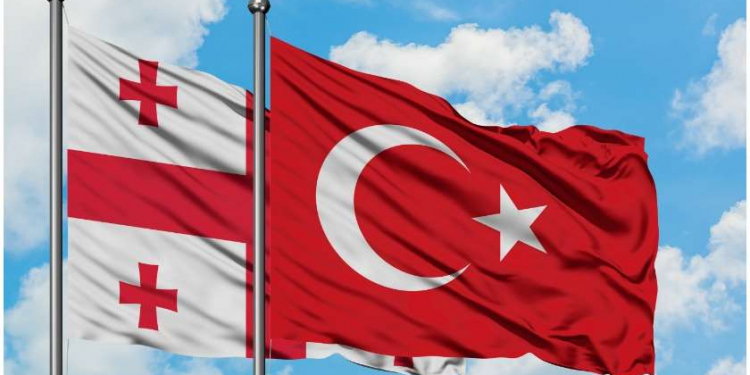The FINANCIAL — Representatives of the Administration of the Government of Georgia met with representatives of the Ministry of Justice of the Republic of Turkey and international experts to discuss issues pertaining to the development, implementation, and reporting of the National Human Rights Strategy and Governmental Action Plan. The meeting was organized by, and held at the initiative of the representatives of the Directorate General Human Rights and Rule of Law of the Council of Europe.
During the meeting, Lela Akiashvili, advisor to the prime minister on human rights and gender equality issues, and Ana Buchukuri, head of the Human Rights Secretariat of the Administration of the Government, discussed in detail the process of developing the National Human Rights Strategy in Georgia and the experience in this field, including the methodology used to define strategic directions, goals, and objectives. In addition, the importance of the participation of international organizations and the civil society together with public agencies in this process was stressed.
“Georgia is among the countries – of which there are fewer than 40 – that have human rights strategies and action plans at the national level. Correspondingly, as a result of the Council of Europe’s proposal, we share our experience with other countries and inform them of the steps that Georgia has taken over these years in terms of the development of both the action plan and the strategy,” Lela Akiashvili noted.
The representatives of the Administration of the Government of Georgia also discussed the challenges that arise during the practical implementation of the objectives set out in the National Human Rights Strategy.
Completed and ongoing institutional reforms in Georgia on gender equality, violence against women and domestic violence, and the empowerment of women were also discussed during the video conference. The importance of integrating the aforementioned issues in the National Human Rights Strategy document was emphasized.
At the end of the meeting, the parties expressed readiness for further cooperation and sharing of experience. At the initiative of the representatives of the Directorate General Human Rights and Rule of Law of the Council of Europe, meetings of a similar format are also planned with other countries.
Also, it should be mentioned that, with EU support UN Women and UNFPA, have launched a three-year regional programme to tackle gender stereotypes and gender-based violence in six countries of the Eastern Partnership: Armenia, Azerbaijan, Belarus, Georgia, Moldova, and Ukraine. The programme, entitled “EU 4 Gender Equality: Together Against Gender Stereotypes and Gender-Based Violence,” ultimately seeks to strengthen equal rights and opportunities for women and men by challenging perceptions about men’s and women’s roles in the family and in society and working to eliminate gender-based violence. The programme has a budget of €7,875,000.
Earlier this month, The Parliament of Georgia adopted draft law on “Violence against Women and/or Prevention of Domestic Violence, Protection and Assistance to the Victims of Violence” and other subsequent amendments in the third reading, elaborated by the Ministry of Internal Affairs. The U.S. Embassy salutes country’s steps towards overcoming any kind of violence.
Furthermore, today was announced that, A new Europol-led project, funded by the European Union, has been launched, focused on strengthening the capacity of Armenia, Azerbaijan, Belarus, Georgia, Moldova and Ukraine to fight organised crime more effectively. The project will contribute to reducing crime and creating a safer living space for citizens in the region. As part of a larger €10 million EU cooperation initiative, the EU has dedicated €2.5 million to support the project that will run for the next four years. Read more. Read more.































Discussion about this post